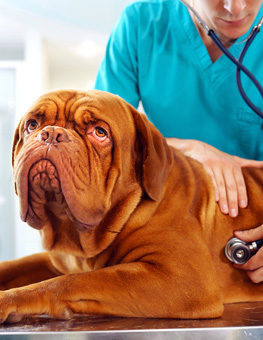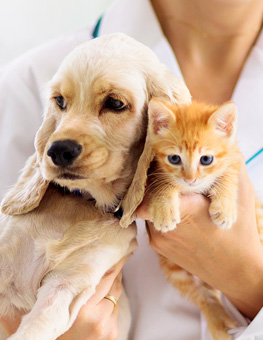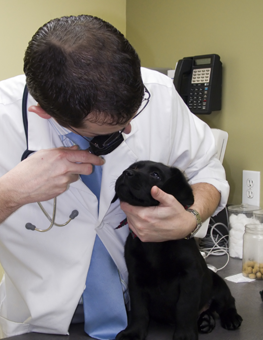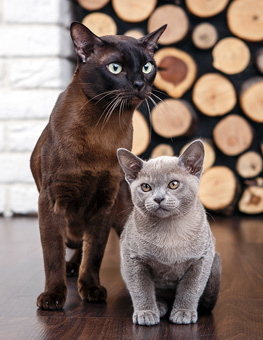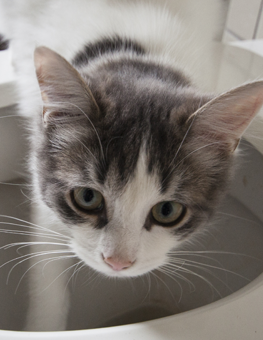Puppy Spay and Neuter: Why & When to Do It
If you've just gotten a new puppy and aren't sure when you should spay or neuter them, you're not alone.

The benefits of spaying or neutering your puppy include many positive behavioral changes.
Many new dog owners wonder just when they should spay or neuter their puppy and come across a wide variety of information. Some sources may tout the medical benefits of early neutering while others may caution you to wait until your dog's first heat or some other time marker. This article will help dismiss the myths and give you the facts about when you should spay or neuter your puppy.
Benefits of Spaying and Neutering
While your spayed female dog obviously won't get pregnant, there are many medical benefits to spaying and neutering your dog. The American Society for the Prevention of Cruelty to Animals (ASPCA) noted many positive behavioral changes in spayed and neutered dogs. Dogs tend to be less wild after being spayed or neutered, so they're less likely to try to escape from your yard and potentially put themselves in harmful situations.
There are many benefits of spaying female dogs. For instance, female dogs in heat may fight each other for the attention of males. This can lead to injury in your dog or someone else's, so it's best to spay your female dog and help put a stop to this behavior. Spaying can also reduce the risk of mammary cancer in your dog, as well as the infection pyometra and certain tumors.
When Should I Get My Puppy Spayed or Neutered?
When looking for information about spaying or neutering your puppy, it's not uncommon to find different types of advice. Veterinarian Sherry Weaver noted that there are no substantiated studies when it comes to health problems and early neutering.
While some uncontrolled studies linked cancer and joint problems in large dogs to early spaying and neutering, these are common issues in larger dogs and no studies have definitively linked the two.
Other studies have found that spaying or neutering as early as six weeks likely has no ill health effects. Many veterinarians suggest having the surgery done before your dog is six months old regardless of first heat or other indications.
This post is provided by the pet experts at Hartz.






